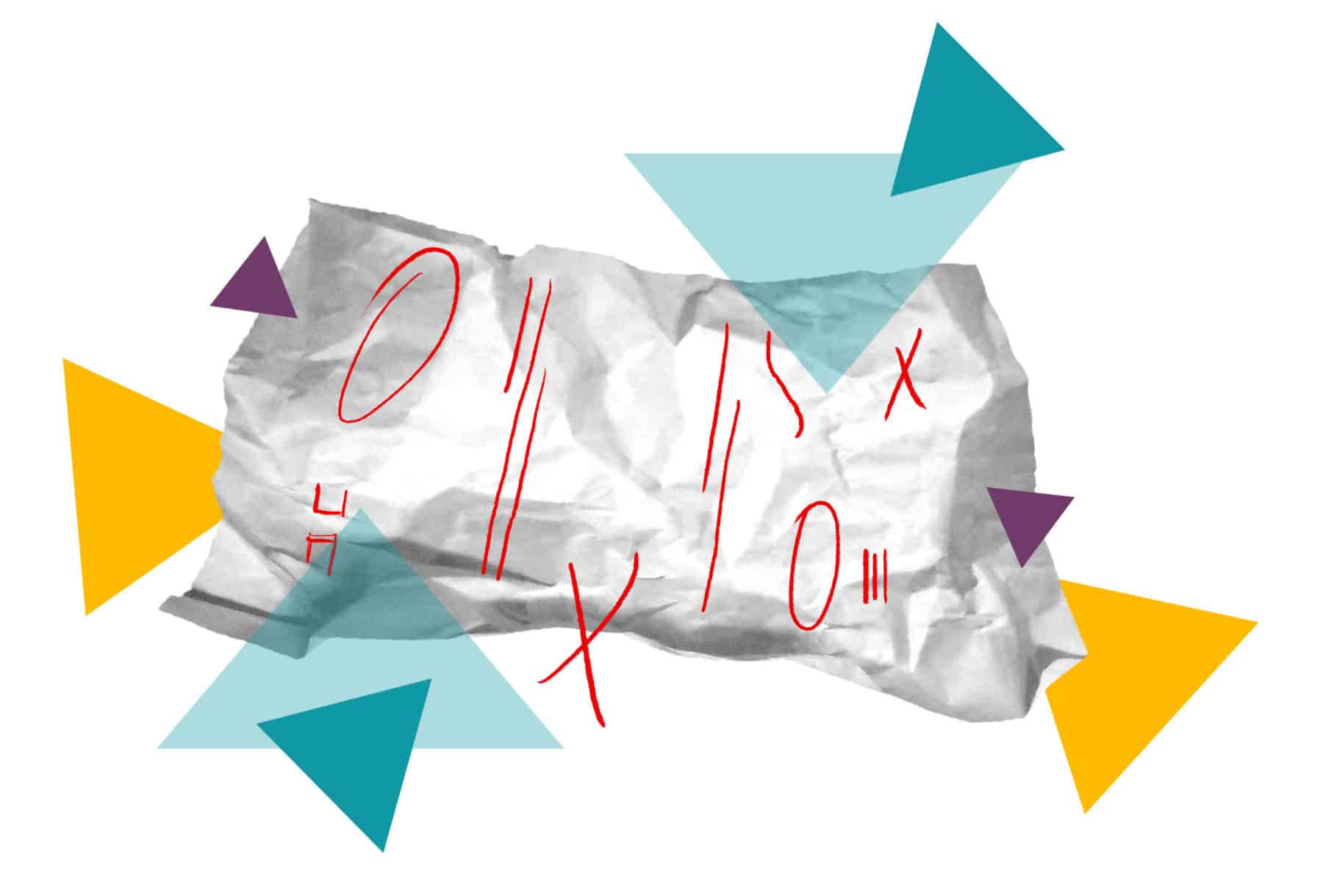To a copyeditor, mistakes are everything. How many professions are devoted exclusively to finding and eliminating human error? It’s not only what copyeditors do; it’s all we do. We are correctors. Like maggots, we feed on the boogers and rot left behind by writers. Line by line, word by word, we poke and tweak and chew over their words, and if they’re lucky, we give them back something clean and gleaming, picked free of every awkward phrase and offending comma.
To writers, editors are the ones who make everything right. Writers may know the elements of proper English prose writing, but in the midst of the creative storm, grammar and consistency can get swept away. Copyeditors do not get swept away; they’re meticulous and compulsive and tireless. They save writers from embarrassment and shame.
That’s the myth, anyway. And sometimes it’s true! But another, more terrible, truth is that copyeditors make mistakes. And as a copyeditor, I can tell you that when mistakes happen, it’s not easy for us. We are the correctors. We don’t handle it well when we mess up. We’re better at denying and rationalizing and finger-pointing.
But are we not human? Why shouldn’t we err? One study on human error rates concludes that “the best performance possible in well managed workplaces using normal quality management methods are failure rates of 5 to 10 in every hundred opportunities.”
Nevertheless, in some pursuits, there’s an idea that perfection can be attained. When surgeons mess up, or airline pilots, or dry cleaners, or wedding planners, expect lawsuits. Even in creative fields, where the real-life stakes are arguably lower than in surgery, we believe in perfection. Quilt makers have a quaint and somewhat arrogant tradition of purposely introducing a mistake into each quilt lest they offend God, the assumption being that their work would be perfect otherwise. And poets—don’t get me started. They’ve somehow convinced us that everything they write is intentional and infallible.
It’s clear that in published works, too, there is the expectation of perfection. Shocked and appalled readers of newspapers write letters and post comments online when they find typos. “I could be a copyeditor. I’m incapable of reading past a typo,” they brag. “It’s such an affliction! I can never read for pleasure.” They attribute mistakes in grammar and spelling to moral decay, wanton teenage texting, and the decline of civilization. (It’s ironic that a typo can be seen as evidence of a descent into illiteracy: in the time of Shakespeare, standard spelling and punctuation didn’t even exist, yet somehow great literature managed to happen.)

These self-appointed correctors may not realize that it’s not all that clear, even to the experts, what’s “correct” when it comes to great swaths of language and grammar. Anyone who follows the blogs and essays of language scholars and linguists knows that many of the old rules we learned (such as the one against splitting an infinitive) can be safely disregarded as superstition and that debates are lively about what is currently “standard English.”
What troubles me more than the ignorance of critics, however, is that copyeditors themselves are not always current on the issues. Consider this: people who haven’t studied history or engineering or biology since high school or college naturally assume that their knowledge is outdated—that the subject has evolved and changed over time. They wouldn’t dream of passing themselves off as professors or engineers or doctors. But no matter if the last English class we took was in 1992, most of us somehow feel that whatever we learned about not beginning sentences with hopefully or ending them with a preposition was the last word in grammar. Never mind that whoever taught us in 1992 was probably using grammar she learned in 1972, which very likely came out of a textbook published in 1952: we still believe that only barbarians could question the rules of English we learned in our youth. Copyeditors tend to be more confident of this than anyone. It’s one reason they’re copyeditors.
And it’s not as though there’s a degree in copyediting. Anyone who’s noticed a delinquent apostrophe or two at the grocer’s can hang out a shingle and—just like that—become a freelance copyeditor. The best ones, perhaps, have been mentored in a job at a publishing house or newspaper. They began by proofreading and worked their way up to editing under the eye of an experienced editor who gave them feedback and instruction. But not every editor has an opportunity to learn in this way. Some have to learn the hard way: from angry writers whose work they’ve edited badly.
It can take years for a novice to get good at copyediting. In the meantime, he may make some smart corrections in the copy he reads, but while he’s at it, he introduces mistakes into the work as well. He’ll decide to spell out all the numbers, but miss a few. He’ll disallow a universally accepted jargon word because it isn’t in the dictionary. He’s never heard of the subjunctive, so he’ll change it to the simple past. He needlessly contorts a sentence to eliminate the use of they as a singular.
So while waiting for perfection, what’s a writer or reader to do?
First, have a heart. A typo is a typo, not a sign that the barbarians are at the gate. Second, educate yourself. Read the fun and informative posts at Language Log or Lingua Franca or Grammar Girl. Third, if you’re a writer, work kindly and collaboratively with your editor. And finally, resist the temptation to post those “gotcha” comments online, pouncing on every its for it’s. While you’re busy fussing, you’re failing to read for knowledge, inspiration, or pleasure.
Now that would be the real mistake.
